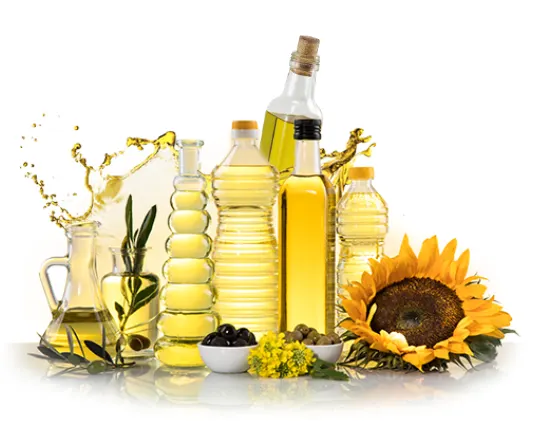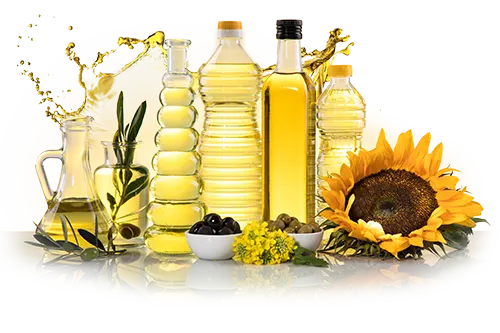Edible Oil
Edible oils are essential ingredients in global cuisines, used across a variety of cooking methods, such as frying, cooking, roasting and seasoning. They contribute significantly to the flavor, texture, and overall quality of food, making them indispensable in both professional kitchens and home cooking. The category includes a diverse range of oils, such as sunflower, canola, olive, palm, and coconut oil, each chosen for its unique properties
Refined oils are particularly popular in commercial settings due to their neutral taste and high smoke points, making them ideal for deep frying and high-heat cooking. Specialty oils like sesame oil or walnut oil are prized for their bold flavors and are often used as finishing oils or in traditional dishes to enhance taste and aroma. Coconut and palm oils are frequently used in baking and processed foods due to their solid consistency at room temperature, lending a desirable texture to pastries and confections.
The production of edible oils involves sophisticated processes, including pressing, refining, and packaging. These processes ensure the preservation of flavor and shelf stability while meeting strict industry standards. Additionally, the supply chain for edible oils spans globally, with major production hubs in Asia, South America, and Europe. These regions specialize in specific types of oils, with sunflower oil being a staple in Eastern Europe and soybean oil dominating North and South American markets.
The global edible oil trade continues to expand due to its critical role in food manufacturing and culinary arts. Its adaptability across cuisines and applications ensures that the edible oil category remains a cornerstone of the food industry, shaping culinary experiences worldwide.









